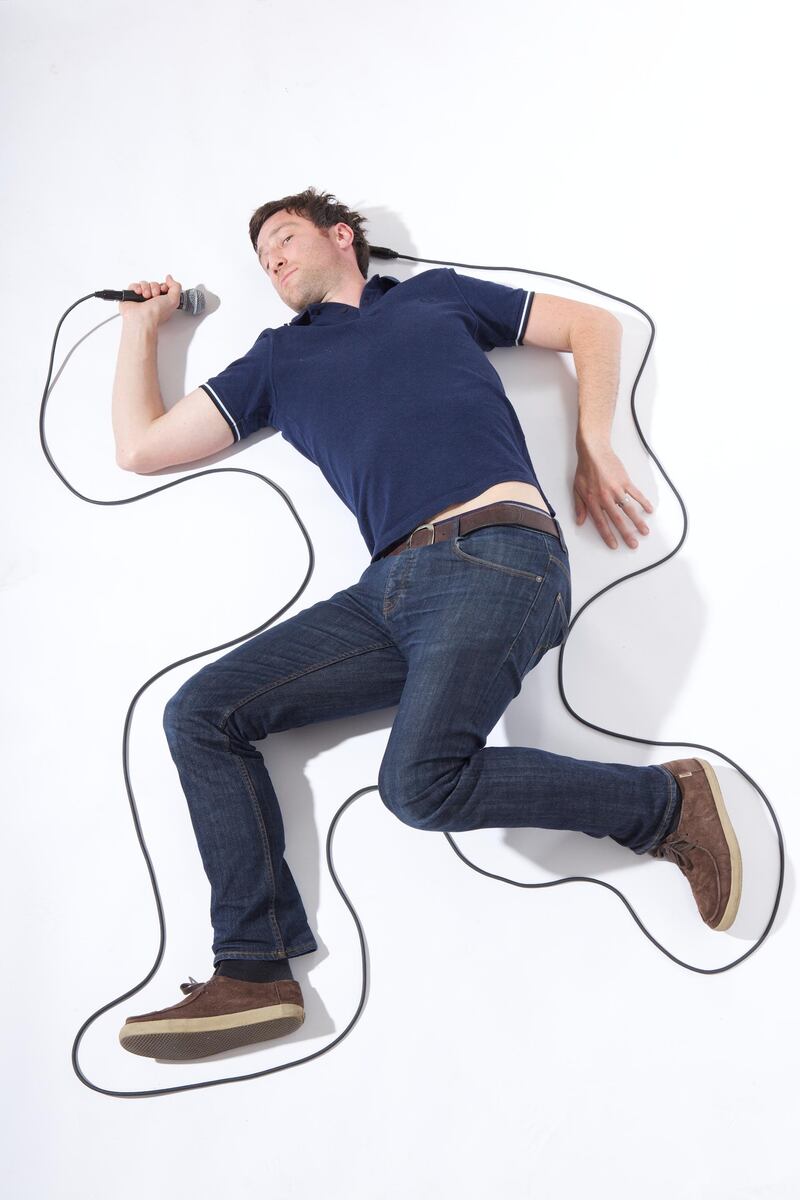Comedy is one of the most subjective parts of our lives. While countless adoring fans are bent double every time Michael McIntyre or James Corden open their mouths, I find both men irksome to the point where I have to turn them off before I put my foot through the television screen. Yet tears stream down my cheeks whenever I see Lee Mack, Frankie Boyle or Ed Byrne. The first time I encountered Mack doing a stand-up show in 2006, I laughed so hard, I feared for my life. And yet, you could sit through the same routine and not have a clue what he's talking about.
And it’s that wild diversity in tastes that must strike fear into the hearts of first-time stand-up comedians approaching the open mic – to figuratively die on stage, your carefully crafted and prepared material having fallen on apparently deaf ears. Why would anyone put themselves through that?
Sakina Vajihi works as a public relations account manager in Dubai, and if you were to meet her, you might understandably think she’d be the last person to take to an open mic; she’s talkative yet reserved and soft-spoken. But totally against type, she gave it a shot late last year at a comedy night at The Hive in Bur Dubai. “A friend of mine has been a stand-up comic for five years,” she says, “and he was moaning about there not being enough women on the scene. He suggested I give it a go, and persisted and promised I’d have all the help I needed to write a script and deliver a punchline. So I agreed.”
Other people she knows, who are active on the stand-up circuit in the UAE, advised Vajihi to stick to real-life stories. “They told me to vent on stage, that there are no limits – just keep going, but with a subject you’re familiar with and passionate about. So I chose three subjects and started putting together a script, knowing I had a three-minute slot on stage when it was my turn,” she explains.
Having a full-blown script is considered a bad idea by established comics, who find it much better to deliver a routine from memory, backed up by what they refer to as a set list. This is basically a few notes – keywords to serve as prompters if they get lost and need to refocus or remember a punchline. Vajihi, though, has plenty of experience as an events MC, so is in the habit of using more extensive scripts without appearing to be reading everything verbatim.

“My biggest problem,” she recalls, “wasn’t a lack of material, but a lack of time to prepare. I had barely a week between agreeing to perform and the actual night, and ended up not having a chance to get the routine together and practice. So I decided to back out rather than risk total failure on stage, but the guys persuaded me that I’d be among friends and that nobody would give me a hard time.”
Clutching her hastily written script in which she’d detailed her topics, she was called to the microphone and as she recalls, she’d never been more terrified. But it was a case of now or never. She adds that her mum, “who never laughs at anything”, was sitting in the front row, which she found rather comforting, despite the disparaging remarks about her jokes being “not funny” while they drove to the venue.
“My first topic was arranged marriages,” says Vajihi, who is from India. “I could tell from a quick glance at the audience that about half of them would be familiar with the subject, but the rest were from [Lebanon, Asia and the West], so I made sure to explain the background before building up to each joke. After a minute, I just ditched the script, though, because the reaction I was getting from the crowd encouraged me to delve more and more into arranged marriages, and the rest of the set evolved from that quite naturally,” she tells me.
She had been cautioned to speak slowly during the delivery, as it buys time, and to pause after a punchline to allow the audience a chance to laugh – sound advice that went out the window when she was at the mic. Did she manage to last the three minutes, though? “I lasted four.”
The laughter and positive response she received did, she acknowledges, put her on a high, and she wasted no time in trying it out again at an event in front of family and close friends. “I would 100 per cent do it again in front of strangers,” she adds.
But before Vajihi or anyone else who's emerged from a short club routine gets any ideas about turning it into a full-time career, it's worth noting that professional comedians usually take many years to reach the point at which they can hold the attention of an audience for 90 minutes at a time. Briton Gail Clough, who has been running The Laughter Factory comedy night in Abu Dhabi and Dubai for 21 years, has been highly influential in the region's appreciation for stand-up. She says: "In his book The Tipping Point, Malcolm Gladwell said you need to spend 10,000 hours doing something to get good at it. It's exactly the same for a comic, which works out at about seven years of regularly performing before they're normally considered a success."
Can you imagine taking seven years to become established? The knock-backs, the self-doubt, the constant adrenaline rushes, the brutal hecklers, the half-baked jokes that go down as well as a dose of the flu? It’s little wonder that many comedians, as Clough agrees, have psychological issues. Those who do break through, however, often achieve worldwide adoration and financial wealth at odds with their early experiences. As recently as 2006, McIntyre, who will be appearing in Dubai next year, was deep in debt and weeping in public, frustrated that nobody seemed to like his routines. Six years later, he was the world’s top-earning comic with many millions in the bank.
The Laughter Factory has brought many household names to the region, including the aforementioned Byrne, Boyle and Mack, as well as Kevin Bridges, Dara O Briain, Andrew Bird and the late Sean Hughes – most of whom were in the early stages of their careers and happy to perform in small venues in the GCC where, initially, predominantly British audiences lapped it up. “They were all seasoned pros even then,” recalls Clough. “And that’s so important because audiences, even here, can be savage. Over the past few years, though, we’ve witnessed audiences becoming more diverse. A good 80 per cent of the crowd is international, which means we’ve been able to open up to more comics from around the region. Some of the Emirati comics on the circuit are very, very funny.”
______________________
Read more:
[ Is Sacha Baron Cohen’s ‘Who is America’ really exposing issues? ]
[ One joke at a time: how the Arab world is (slowly) tickling its funny bone ]
[ Music takes a funny turn at this year's Edinburgh Fringe ]
______________________





